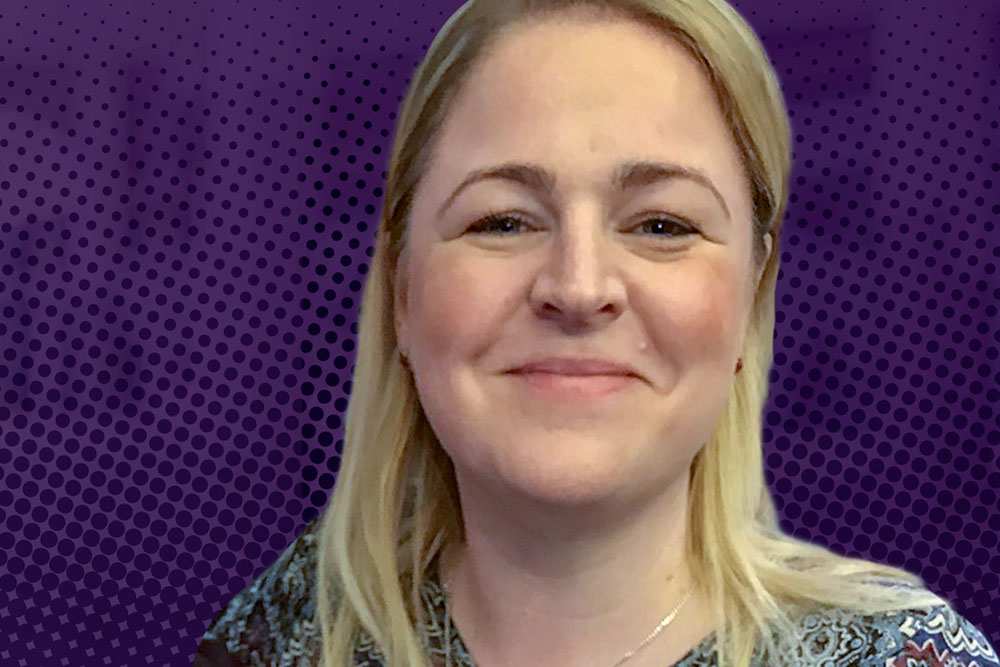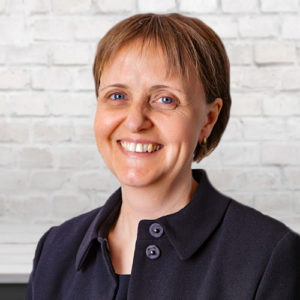The director of digital at one of the most technologically advanced trusts in the country explains how she is promoting IT and transformation expertise through the global digital exemplar programme and the Digital Academy.
Salford Royal NHS Foundation Trust is one of the most digitally advanced organisations in the country. It sits near the top of NHS England’s digital maturity index and is one of just 16 acute global digital exemplars.
That puts Salford in a very different position to many NHS trusts; but it certainly doesn’t mean that all its IT challenges are behind it. “Being part of a digitally mature trust comes with its own challenges: security, uptime,” says director of digital Rachel Dunscombe.
“Technology is so integral to what we do that it absolutely has to be resilient and available. One of my pieces of advice is that you cannot put a system in and take its team out. You cannot think of IT as ‘back office’ any more: you have to think of it as clinical support.”
Legacy and structural challenges
There are other challenges. Because Salford has been digitising for so long, it has to overcome legacy issues including data which is “not in the right format” to exchange using current standards. Yet investing in new systems is not easy when NHS finances are so tight.
Using technology to underpin transformation can also be a challenge, when working practices and finances need to be aligned. “The NHS has done transformation in small pockets, but the money is not structured to make widescale transformation easy,” Dunscombe says.
“We want to do more telehealth, more virtual consultations: but commissioning arrangements cannot always handle that, and the lead time for change is a year or 18 months.” Overall, she says, leading a digitally mature trust “is not easier: it is different.” Also “higher stakes” and “exciting.”
Blueprints for saving lives
Salford’s GDE experience has been wholly positive. The GDE programme was set up by NHS England following the Wachter Review of NHS IT that was commissioned by Jeremy Hunt in 2015.
The review recommended that national investment should be directed towards digitally advanced trusts, so they could become world-class and develop blueprints for others to follow. Dunscombe says Salford has used the programme to “optimise pathways and focus on outcomes.”
“It has given us headspace,” she says. “It has enabled us to create more clinical informatics leadership. It has enabled us to develop better metrics on stroke, dementia, AKI (kidney failure). I am very proud of some of our outcomes. There is no doubt that money has been spent on things that are saving lives.”
Still, she acknowledges, the GDE programme was a “one-off opportunity”. Two years on, its acute work is starting to wrap-up, and the challenge now is to produce useful and effective blueprints. Dunscombe says Salford is working hard to make its work applicable to trusts that do not use the Allscripts Sunrise electronic patient record it deployed back in June 2013.
“I am quite passionate about making sure that we make this as applicable as possible,” she says, “so we are focusing on making sure that other people can do what we have done, even if they do not have our system.” Practically, she adds, this means focusing on issues such as culture, and pathways.
Preparing a fast follower to follow
Similarly, Salford is working to help its GDE fast follower, Pennine Acute NHS Foundation Trust, to prepare for the eventual implementation of an electronic patient record.
“Pennine Acute will be keeping its patient administration system, so we are using some of the things that we have developed to get it ready to deploy an EPR,” Dunscombe says.
“We have also peeled off elements of digital innovation at Salford that can be implemented without additional technology initially: telehealth robots, digital speech enhancement for the PAS. We are starting with initiatives like that, because embedding clinical practice within an EPR will take time.”
While it has a long way to go, Dunscombe is confident that Pennine Acute will digitise successfully. “There are some amazing people there, who have held everything together and now want to take on digital leadership roles,” she says. “It is a very different trust [to Salford] but the commonality is good leadership.”
Learning by doing
Developing digital leadership is another of Dunscombe’s passions. In 2017, she was announced as the first chief executive of the NHS Digital Academy; the creation of which was another key recommendation of the Wachter Review.
The academy is a virtual organisation, developed as a partnership between NHS England, Imperial College London, the University of Edinburgh and Harvard Medical School that is developing a one-year learning programme for digital leaders at, or aspiring to, board level.
The first cohort of 105 delegates started in April this year and the academy is recruiting its second cohort for April next year. Dunscombe acknowledges that the academy has been on a learning curve, but she says its content “has been rated very highly” and the second course is “three times over-subscribed.”
“I think the academy needed somebody to lead it who was operational, because otherwise it might have been too abstract” she says, when asked how she manages to align her work at Salford and Pennine with leading the new organisation.
“I am juggling roles and time, which is what the delegates are doing. And I would really have liked to do this course, so in some ways I am going on the journey with them. I see myself as commissioning this on our behalf.”
The bigger picture
One of the things the academy has focused on is the wider financial and policy environment in which chief information officers and their clinical and nursing colleagues work. “A brilliant piece of feedback has been ‘I now understand the context in which I work’,” Dunscombe says.
“CIOs tend to be very familiar with the technicalities of the systems they work with, while CCIOs may understand analytics in a way that CIOs may not be exposed to. But neither may be familiar with how healthcare is commissioned or the potential of developments such as population health.”
That context will become increasingly important over the next few years, as the NHS publishes and then moves to implement the long-term plan that is now expected in early December.
The plan will aim to make the best use of the £20 billion a year “birthday present” that prime minister Theresa May announced to mark the service’s 70th anniversary in July.
But the signs are that it will start with the Five Year Forward View’s platform of acute service reconfiguration and the development of integrated health and social care services, combined with the population health management agenda of using analytics to try and prevent adverse outcomes, while refocusing on public health.
In the vanguard of change
Salford is at the leading edge of many of these developments. In November 2017, Salford Royal and Pennine Acute created a Northern Care Alliance NHS Group, led by Salford Royal chief executive David Dalton, to deliver “benefits of scale” across the multiple hospital sites and services they run.
Salford Royal is also part of the Salford Together Partnership that was named as one the ‘vanguards’ for testing out Forward View ideas. The local clinical commissioning group and council now operate a combined budget for health and social care services, to encourage more integrated working, particularly for older people.
Technology underpins much of the policy agenda; by making hospital care safer and more efficient (the GDE piece) to providing the integrated care records needed for integrated working, to delivering the data for risk stratification, to enabling patients to access digital services and support.
“I do an exercise where I talk to boards about the fourth industrial revolution,” Dunscombe says. “Technology is a game changer; and that’s fortunate because there are no other significant things that we can do that will make the difference we need to make.
“We cannot get more buildings, or more people, and there will not be significantly more money. So, I think we will see more and more senior conversations across the health service about how we do things, and how we can do them differently by using technology.”
Some technology, mostly everything else
Returning to her earlier theme, she says this will not be easy. It will require conversations with people working in medical training, and HR, and facilities, and with commissioners, patients and consumers.
But she is confident that change is coming; not just because the NHS needs to get to grips with its sustainability and transformation agenda, but because users want it. “Three quartersof the patients on our renal dialysis pathway cannot work because they have to come into hospital so often,” Dunscombe says by way of example,
“We need to change those types of statistics. We need to segment our patients, so that people who are happy to call in for advice during their lunchtime, or to self-test at home, can do that; while the people who need intensive, face to face interaction get that.”
The Royal College of Physicians has just published a report calling for an end to ‘one size fits all’ outpatient departments, and Dunscombe says this is the way that many services will be going. “We need personalised outpatients,” she agrees. “A more diverse offer” that is digital rather than face to face by default.
Taking charge, leading change
For a long-time, digitally mature trusts like Salford Royal could find themselves isolated in what one commentator called “a sea of non-interoperability.” But the policy agenda, GDE programme, and initiatives like the Digital Academy are changing that.
“The academy is creating a cohort that people can be part of as they go on their digital journeys,” Dunscombe says. “Delegates have a wider support network and a wider evidence-set for their organisations to draw on.
“Another of the brilliant moments in the first year was when somebody stood up and said: ‘We can change this.’ Because that is right. People working in NHS IT have a voice and can influence trust and commissioning arrangements. We are creating a system that can influence what policy makers do: and that is what is really essential.”



